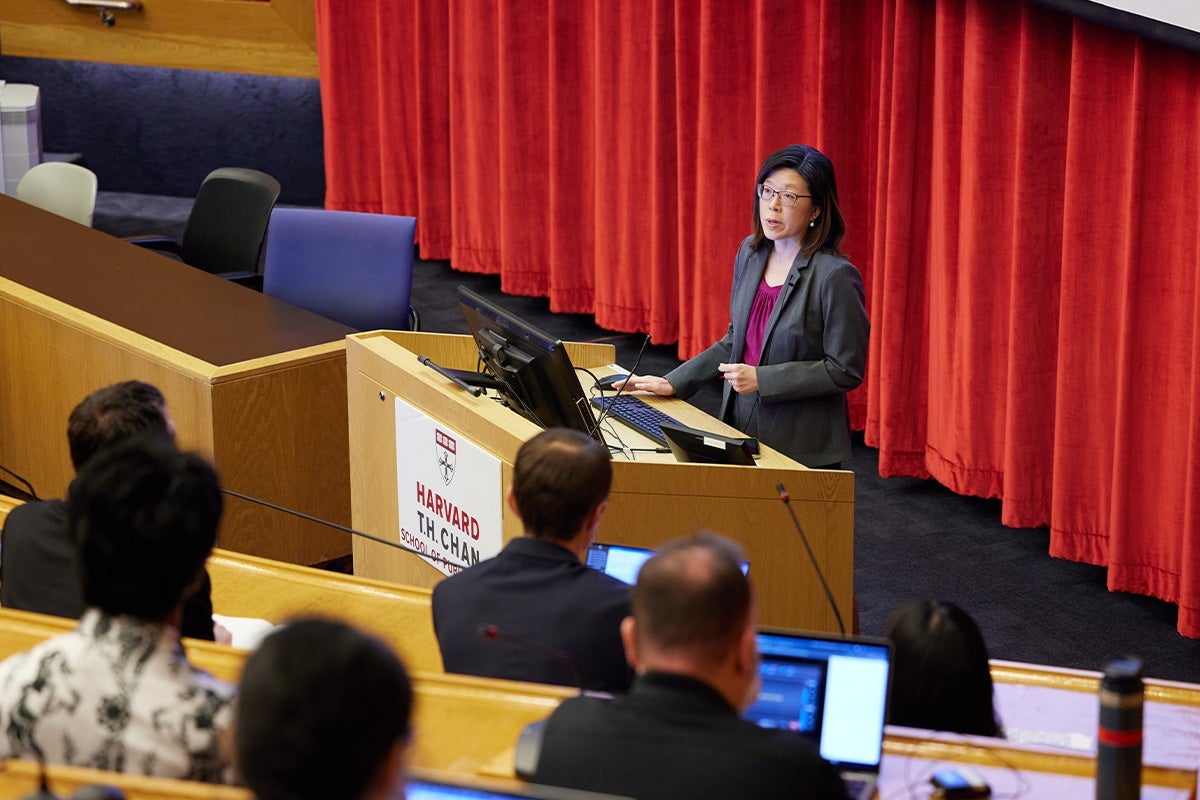John B. Little Center for Radiation Sciences
The JBL Center supports cutting edge biological, physical, and population-based epidemiological research to understand, interpret, and estimate the health effects of radiation to pave the way for effective preventive and therapeutic strategies.
665 Huntington Ave, |
Boston, MA 02115
About the Center
The JBL Center supports cutting-edge biological, physical, and population-based epidemiological research to understand, interpret, and estimate the health effects of radiation and enable effective preventive and therapeutic strategies. A primary focus is on understanding fundamental interactions of ionizing radiation with molecules, cells, and organisms. Major research topics include the roles of p53 signaling, DNA repair, and cell death in responses to ionizing radiation. Our radiation biology research provides molecular and mechanistic insights for population-based studies of radiation epidemiology, exposure/risk assessment, and health outcomes.
We will use acute and chronic exposures to ionizing radiation as a means to understand underlying mechanisms of cellular and organismal stress responses. Our challenge will be to understand these mechanisms in detail so that we can predict effects of genetic and environmental differences between people on their relative risk or reward from radiation exposure, be it radiotherapy or a CT scan. To this end, we believe that critical areas of basic research must include cellular defenses against oxidative and proteotoxic stress, diet, inflammation, energy metabolism, and transcriptional networks that facilitate adaptations to stress.
An emphasis will be placed on human populations that have been exposed to radiation. We will implement cutting-edge computational and systems biological and genetic approaches to integrate mechanistic studies with organismic responses and adaptations and to develop advanced models through large-scale analytical platforms to generate novel translational paths. The JBL Center seeks to be able to expand its access to data and biological samples from cohorts around the world exposed to radiation. Sophisticated molecular markers of dose response, biological effects, and susceptibility traits will be explored for assessment of the association of human population radiation exposure and health effects.
Apart from the assessment of background radiation (especially radon progeny), routine uses of ionizing radiation for diagnosis, therapy, and occupational exposures to ionizing radiation, both in medicine and in the nuclear industry, the JBL Center also seeks to explore and understand exposure assessment in unusual situations such as nuclear terrorism and reactor accidents. Using the combined intellectual effort of its expanding collaborative efforts, the JBL Center will work to develop and implement effective humanitarian strategies for relief, protection, and prevention of nuclear disasters.
The JBL Center is positioned to participate in the education and training of the next generation of radiation science leaders. The center will establish PhD and postdoctoral fellowships relevant to radiation sciences to support scholars with PhDs, and when appropriate, those pursuing relevant clinical fellowships in Harvard hospitals to advance their research in radiation sciences. A keystone of the center’s educational programming has been the JBL Symposium. The annual symposium attracts more than 200 people and continues to be an outstanding event for world-class scientists to introduce exciting and emerging areas of research. It provides a unique platform for scientists to exchange knowledge in the field of radiation, stress response, and relevant areas. We expect the center will also offer short training courses covering topics relevant to radiation research and an open bi-weekly seminar series available to the whole Harvard community.
The center’s Radiation Instrumentation Core (RIC) provides ionizing radiation resources, equipment and expertise. We have the capability to support accurate radiation dosimetry as well as in vitro and in vivo irradiation for research purposes.
The center also maintains a specialized bio-analytical core, which provides tools and analyses to support biomarker discovery and application in radiation science research. Our key areas of expertise include metabolism, p53 signaling, DNA repair, and cell death.
In our vision of the future of radiobiology at the JBL Center, we propose to use acute and chronic radiation as a means to understand underlying mechanisms of cellular and organismal stress responses.
Today a great deal is known about the cellular response to “targeted” DNA damage, including relevant DNA repair pathways and signaling mechanisms executing cell death or survival programs in response to radiation. It is also known that DNA is not the only target, as irradiating the cytoplasm outside of the nucleus can also lead to radiation-induced genome instability. Much less is known about cellular homeostatic mechanisms governing stress resistance and how they participate in adaptation to future stressors, particularly in the setting of chronic low-dose stress. The role of the immune system in response to radiation damage is poorly understood, it can participate in protection from tumorigenesis through immune surveillance, but can also contribute to an inflammatory, tumor-promoting environment. While it is clear that energy metabolism is intricately linked to stress resistance and declines with age, we still do not understand how these processes are interconnected or how they can be manipulated.
In our vision of the future of radiobiology at the JBL Center, we propose to use acute and chronic radiation as a means to understand underlying mechanisms of cellular and organismal stress responses. We must understand these mechanisms in detail so we can predict effects of genetic and environmental differences between people on their relative risk or benefit from radiation exposure, whether radiotherapy or a CT scan. Future critical areas of basic research must include cellular defenses against oxidative and proteotoxic stress, diet, inflammation, energy metabolism, and transcriptional networks that facilitate adaptations to stress.


